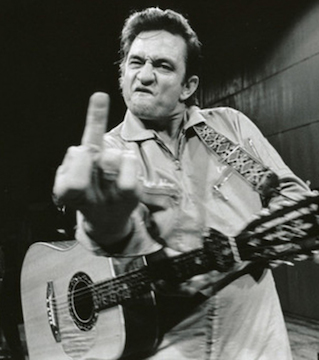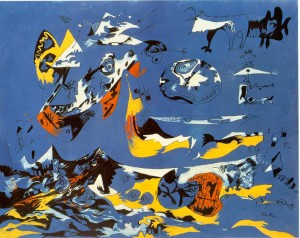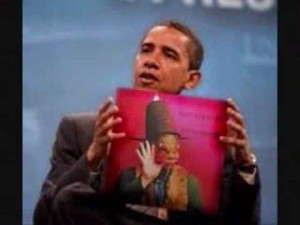“Not caring about things since 1971, so that you don’t have to.”
HAPPY BIRTHDAY TO US. As our nation celebrates itself with inimitable fat & ugly elan, it seems like an appropriate time to celebrate some of the things that should make everyone proud and honored to be an American.
7. Moby Dick.
Really? Yes, really.
The book’s author, Herman Melville — despite getting the unfair (and unjustifiable) tag of boring old white guy, author of the quintessential boring old white guy book about a boring old white whale, not to mention a handful of equally impenetrable short stories (while most high school students are instructed to read Bartleby The Scrivener, most of them — at least partly due to the unfortunate baggage associated with its author — would prefer not to) — is, in fact, quite accessible. Really.
But accessibility is often the enemy of integrity. Why not then celebrate the all-too-infrequent instance that proves to be the exception to the very rules it rewrites? Like any truly lasting piece of expression, the writings of Melville not only have stood the intractable test of time, they incredibly — miraculously — are as viable and valuable to today’s dissolute and desperate, but not altogether dissimilar world. Perhaps resulting from the ever-mercurial moods of the left-leaning academic aristocracy, it has become ironically admissible to dismiss Moby Dick as it once was to venerate it. This would be an unexceptionable development but for the fact that for all the right reasons, this classic American text is also pioneering in its puissant, often sardonic assaults on institutions ranging from the patriarchal status quo, to slavery, to the Puritanical thought-police who cast a long, lamentable shadow on early U.S. history. This book celebrates our itinerant American roots and the notion of positive, peaceful diversity not as an apologetic ideology, but as an empowering, imperative axiom. Melville empathized with the underdog and more important, he understood them — he was one — and his real life experiences help inform the poetic prose that allows these otherwise unrenowned heroes to sing the songs of themselves, proceeding Walt Whitman’s masterpiece by a half-decade.
So: a novel that fulfills on almost every conceivable level, a meditation on our individual essence as well as the push and pull of our similitude as human beings adrift in a turbulent universe that not a little resembles the untamed sea.
6. Captain Beefheart
To say Don Van Vliet was unique is rather like saying the sun radiates heat: it doesn’t quite capture the enormity and impact of the subject. To assert that he was brilliant would be almost insulting, if that is possible. A genius? Let’s just say that if he wasn’t, then no other pop musician has ever been either. Even that is not quite right, since pop refers to popular and Captain Beefheart was anything but popular. He was highly regarded, and always will be, but the circle of aficionados who gravitate to his uncanny catalog is likely to get smaller, not bigger. Also, it just doesn’t work to call what he did pop music; he was an artist. Literally. When he walked away from music, forever, in the early ‘80s, he concentrated on his painting and made far more money from that. (Calling to mind another eccentric genius, Syd Barrett, who turned his back on the scene and quietly tended to his paintings and his plants.)
Not acquainted with The Captain? Start at the beginning.
Safe As Milk (1967) was the one that introduced Don Van Vliet to the world and it remains a middle finger in the face of all the lame conformists who scoff at what they can’t understand.
Listening to this opening salvo is like watching the rock and roll version of Clark Kent coming out of the phone booth for the first time: this quiet, weird dude you laughed at in gym class suddenly soaring in the air above you. You’ve never heard him speak but as soon as he opens his mouth he’s Superman.
It’s not especially sad that this album did not find a widely receptive audience; its obscurity tends to confirm many things we know about the way art is created and received, especially in America. If music like this was successful it would almost cause us to question the calibration of our planet. Besides, Beefheart had as much of a chance at being understood as Jesus Christ at the trading floor on Wall Street. The message was sent, and it’s still out there for anyone who cares to hear it. The biggest blessing is that we can listen to this magical music and be reminded that it’s real, it happened. He happened, and some of us will spend the rest of our lives trying to figure out how we managed to get so lucky.
5. Howlin’ Wolf
Van Vliet learned more than a few tricks from the Wolf.
Six foot, six inches. Approximately 300 pounds. Named after President Chester A. Arthur. In a class entirely by himself as a singer, performer and presence. If Muddy Waters his friendly (and at times not-so-friendly) adversary was like an industrious bee that produces so much sweet honey, Howlin’ Wolf was a bear that crashes into the nest, snarling as he swats away the thousand wasps circling his head.
Along with his ace guitarist, Hubert Sumlin, Wolf made some of the most covered (if essentially uncoverable) blues classics of that era. Many lesser men took a crack at numbers like “Sitting On Top of the World”, “I Ain’t Superstitious”, “Spoonful”, “Back Door Man” and “Little Red Rooster” (think Rod Stewart, Mick Jagger, Eric Clapton and Jim Morrison, to name a handful of the more opportunistic pups). Despite how embarrassing many of these efforts sound in comparison to the original versions, most of these bright-eyed white boys were paying genuine tribute to the man they admired. And Wolf, benefitting from the publicity these bands provided as well as his own shrewd business acumen, was one of the very few blues immortals who actually earned money during his lifetime.
If you’re not down with The Wolf, it’s not just that you are depriving yourself of one of the singular voices of the last century, you are actually missing an important chunk of America itself. Put another way, touchstones like “Smokestack Lightnin’” and “Sitting On Top Of The World” endure less as (merely) American songs and more as components of this country’s unique sensibility. Believe your ears because they are, in fact, even more than that.
4. Junior Kimbrough
Slowly, steadily, inexorably, they are leaving the planet. One at a time. We will never see men like this again. American-made in every sense of the phrase, they came up the way so many bluesmen came up (and so many men who didn’t sing, but know the blues, came up). The combination of hardship, hard work, hard times and being born in the wrong place at the wrong time, under a bad sign. Of course, being born in the wrong place made it the right place for the art to emerge. Their pain, our gain. In many cases, anything but a fair exchange, and all we can do is pay homage and be grateful. Now, more than ever, as these ambassadors leave the stage, it will be more difficult to keep their legacies alive, so attention must be paid.
3. Wayne Shorter
Some of them are still with us.
About to turn 82 years young, Wayne Shorter is, for my money, possibly the most underrated genius in any genre of music. To be sure, he gets plenty of props within jazz circles and the people who know really know. And in his wise, humble way, he is probably cool with that. But his name does not come up quickly enough, or often enough in discussions of the true masters. And aside from his considerable proficiency on the horn(s), he is also among the most distinctive and consistently satisfying composers. And while Miles, who was without peer in assembling talent, had the vision and deservedly gets the lion’s share of the credit (he was the lion, after all), a good chunk of the material on those second quintet sessions was written by Shorter. And here’s where it gets unbelievable: all through the mid-to-late ’60s –at the same time they were in The Quintet– he (as well as Hancock) was dropping epic masterpieces on the Blue Note label (think Maiden Voyage, Speak Like A Child, JuJu, Speak No Evil –for starters).
Wayne Shorter is like imported dark chocolate. Or fresh Kona coffee beans. Or a 2004 Brunello (or a 1964 Brunello for that matter). Or whatever type of car people who appreciate cars get excited about. You get the picture. Wayne Shorter is, in other words, the authentic item that aficionados savor, but whom virtually anyone with unpolluted ears can immediately appreciate. We odd and admittedly obsessed folks who really love jazz have no agenda. Really. (I’m not talking about the aesthetic prigs who have nothing good to say about anything other than the music they endorse; that is a certain type of poseur who has always been amongst us, whether the topic is music, literature, movies or wine or food or coffee or, especially these days, beer, et cetera.) All we care about is disabusing opinionated but clueless blowhards of the notion that jazz is (insert cliche here: to include “old-fashioned dance music”, “boring”, “musical masturbation”, “shrieking”, “easy listening” (!!!), “overwhelming”, et cetera) what it is or, put another way, what it is so manifestly not.
2. Charles Mingus
There are a million reasons to love Charles Mingus.
Charles Mingus had many things to say, and he used his mouth, his pen, his fists, and mostly his music to say them. Of the myriad words that describe Mingus, passionate would trump all others. Mingus cared—deeply. Of the many compositions that could be chosen to define him, “Haitian Fight Song” endures as the best articulation of the inequities that consistently inspired his best work. The song is, of course, about everything (as is pretty much all of Mingus’s music), but it is mostly about the tensions and turmoil inherent in the lives of the dispossessed. Not for nothing was his autobiography entitled Beneath the Underdog. The momentum of the song (after a snake-charming sax solo from Shafi Hadi) stops in its tracks when Mingus breaks it down and, as the band slowly drops out, deconstructs the theme with only his bass, then goes on to say some of the things that needed to be said in 1957.
And for anyone who understandably does not wish to analyze or sterilize music that can easily account for itself, let’s cut to the chase: “Haitian Fight Song” is one of the most angry yet eloquent, ardent yet erudite and—this is the key—most jaw-droppingly swinging and kickass compositions ever. It is a statement that speaks volumes and not a single word is spoken. Significantly, this was quite a few years before artists’ statements regarding racial strife became commonplace or mainstream. But this is just one of many instances where Mingus was ahead of the crowd. Mingus led several big bands later in his career, but listening half a century later to the sheer force of sound this quintet made remains a revelation. It is a hurricane that blows through your life and changes everything.
And, in ways that are sad and wonderful as only the best art is capable of being, it’s just as relevant, and necessary today as it was in 1957.
1. James Brown
On this most American of holidays, it seems appropriate –if not obligatory– to celebrate the most American of geniuses.
It does not get any more American than James Brown, does it?
From the (literal) rags-to-riches story, the innovation and influence, the (inevitable?) disintegration and late-career redemption: James Brown is America. Brilliant, resilient, complicated, undeniable, inevitable.
Do you realize how ludicrously good James Brown was? You don’t. I don’t either. I’ve been worshipping at that altar for over two decades and, perhaps more than any other artist, I’m consistently astonished by that wonderful shock of recognition: how unfuckingbelievable he was; how many heads taller he stood, in terms of creativity, delivery and leadership, than the rest of the pack.
You hear the obvious, righteous songs on the radio, or on movie soundtracks: “I Got You (I Feel Good)”, “Sex Machine”, “Papa’s Got A Brand New Bag”, “It’s A Man’s Man’s Man’s World”. Those must be acknowledged, for their historic import and –more importantly– for how great they make you feel. James Brown does not just make you want to dance (he may even make you believe you can dance), but more, he makes your soul dance.
If you have not picked up the cheap and always-available 20 All Time Greatest Hits! you really need to make that a priority. If you really want to treat yourself (and you really should), snatch up Star Time, the four-disc set. If you’ve never gone deep with James Brown, this will be like getting lucky for the first time. Only better. And it never stops.





